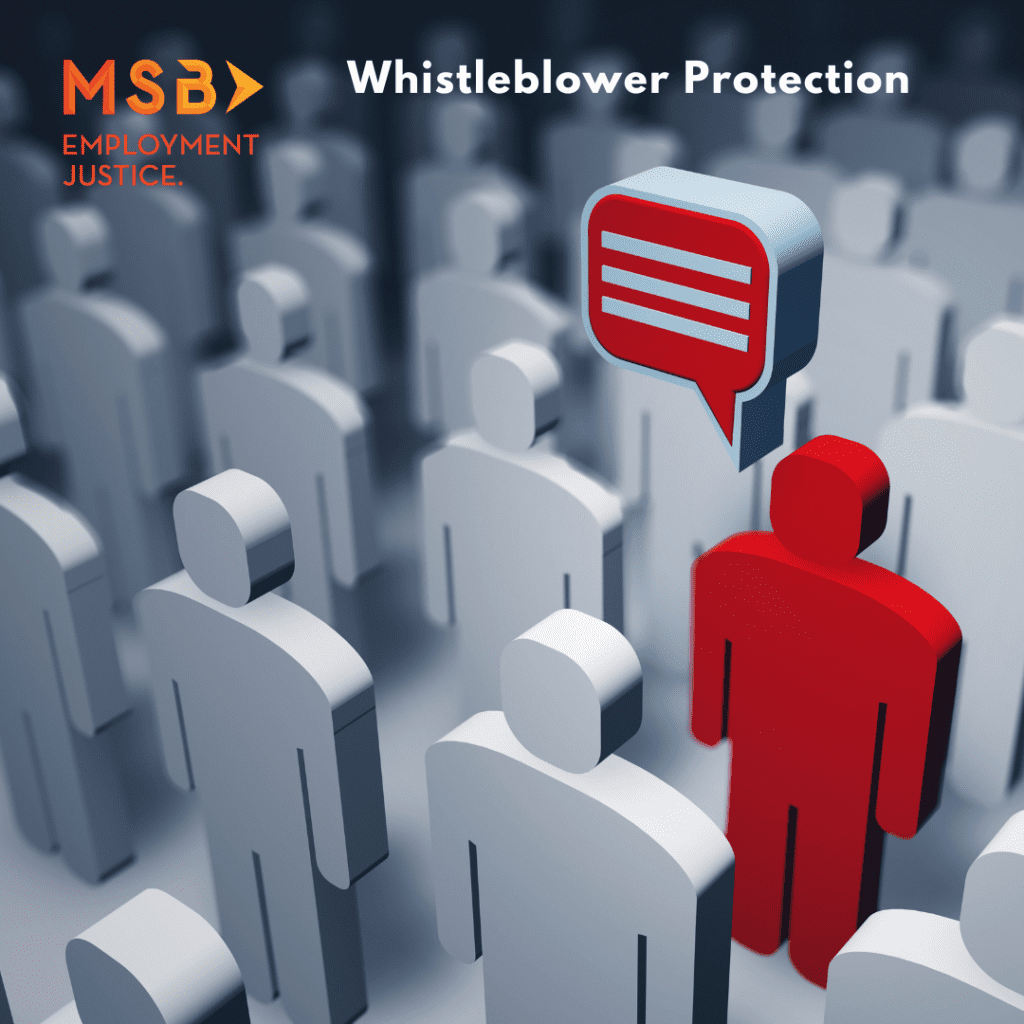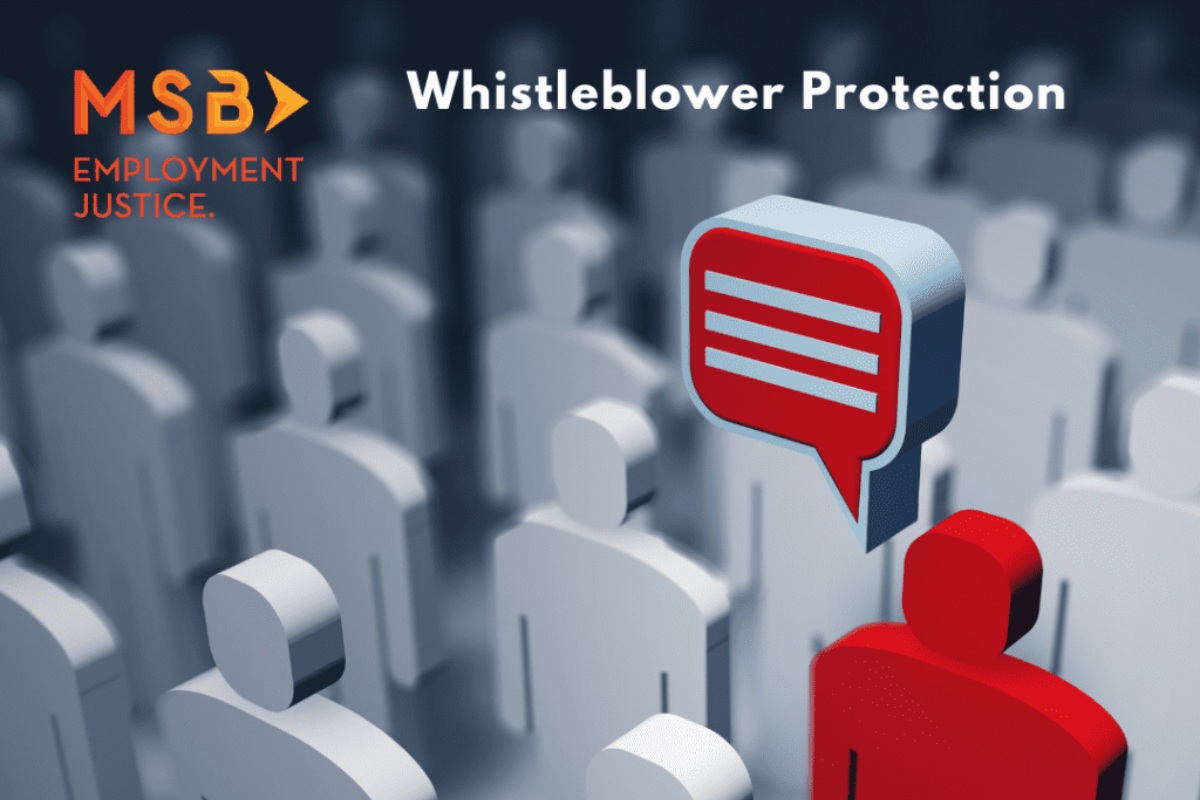
Witnessing illegal or unethical activities in the workplace can be unsettling. Deciding to report such misconduct is courageous and necessary for maintaining healthy, thriving workplaces. Whistleblowers also play a critical role in our society by exposing wrongdoing that harms people and communities. If you’ve taken steps to expose wrongdoing, you might be a whistleblower, entitled to legal protections under Minnesota and federal laws.
The Minnesota Whistleblower Act (MWA) is designed to shield employees from retaliation when they report illegal activity at work. But how can you determine if you qualify as a whistleblower? What specific protections are in place if your employer retaliates? And what steps should you take to protect yourself? This blog addresses these questions, illustrating the application of the MWA through real-life cases.
What Is a Whistleblower?
A whistleblower is someone who reports illegal activity or unsafe practices at work. This could mean:
- Reporting your employer for violating state or federal laws.
- Refusing to take part in illegal activity at work.
- Reporting unfair treatment of employees that violates the law.
- Participating in an investigation about workplace misconduct.
- Filing a complaint with an external agency, like the Minnesota Department of Human Rights, the Minnesota Department of Labor, the IRS, or OSHA.
If you have done any of these things, you might be a whistleblower. But what does that mean for you? The Minnesota Whistleblower Act and other federal laws exist to protect you from retaliation if you report wrongdoing.
What Is the Minnesota Whistleblower Act?
The Minnesota Whistleblower Act protects employees who report violations of law from employer retaliation. Under this law, your employer cannot punish you for reporting illegal behavior or participating in an investigation about workplace misconduct. Here are the key protections under the MWA:
- Your employer cannot fire, demote, or discipline you for reporting wrongdoing.
- You are protected even if you were wrong about the violation, as long as you reported it in good faith (meaning you genuinely believed something illegal was happening) and what you reported, if true, would be an actual violation of the law
- You do not have to report the violation to an outside agency—you are still protected if you reported it internally (to your boss, HR, or someone with authority in the company [like an executive or other ‘higher up’]).
What Does Retaliation Look Like?
Retaliation can take many forms. Some types of retaliation are obvious, while others can be subtle. Here are some common ways employers retaliate against whistleblowers:
- Getting fired or demoted after reporting misconduct.
- Receiving unfair performance reviews after making a complaint.
- Having your hours reduced or getting assigned undesirable shifts.
- Being harassed or threatened by supervisors or coworkers.
- Losing opportunities for promotions or pay raises.
- Being transferred to a less desirable location or job assignment.
The following recent court rulings are examples of how the Minnesota Whistleblower Act protects employees from retaliation and how MSB helps whistleblowers who have been retaliated against:
Example #1: An executive reports fraud and deceptive trade practices.
A finance executive was terminated by a large credit card company after refusing to lie during the implementation of a business deal. The executive refused to lie because not only is it unethical, but it was also illegal in his opinion because of laws on the books like the Minnesota Deceptive Trade Practices Act. Minn. Stat. § 325D.01, et. seq. The executive retained MSB Employment Justice to bring claims against his former employer. Recently, the executive defeated the credit card company’s attempts to have the case thrown out in federal court. The ruling means that the executive is entitled to bring his case before a jury to attempt to hold his former employer accountable. This case shows that if you’re fired in retaliation for refusing to do something illegal, you could have claims under the MWA.
Example #2: A nurse reports outdated surgery practices that harm patients.
A nurse working for a large regional hospital was terminated after reporting that a surgeon was using outdated surgical techniques that were proven not to be best practice. These old surgical techniques were below the current standard of care used by surgeons in Minnesota and across the country. The nurse hired MSB to represent her in her fight to protect patients and hold the hospital responsible for terminating her in retaliation for raising these concerns. MSB Employment Justice negotiated a valuable settlement on the nurse’s behalf on the eve of a jury trial. This case shows that whistleblowers courageous enough to speak up can have a tremendous positive impact on others’ wellbeing, and it highlights that the MWA has special protections for workers in health care fields, who cannot be retaliated against for reporting substandard patient care.
What Should You Do If You Experience Retaliation?
If you believe you are being retaliated against for whistleblowing, do not stay silent. Here are some steps you can take:
- Document Everything: Keep records of your complaints, any negative actions taken against you, and any communication related to your report.
- Report the Retaliation: If possible, file a complaint with HR or another company representative.
- Seek Legal Help: Whistleblower retaliation cases can be complicated. An experienced employment lawyer can help protect your rights and guide you through the process.
Are You a Whistleblower?
If you have reported illegal activity, fraud, or unsafe conditions at work and faced retaliation, you may be a whistleblower under Minnesota and federal law. The law protects you from punishment for speaking up and gives you the right to take legal action if your employer retaliates against you. If you believe you have been retaliated against, it is important to get legal advice as soon as possible.
The team at MSB Employment Justice specializes in helping employees who have suffered workplace retaliation. They can help you understand your rights and take the next steps to protect your job and your future. Standing up for what is right takes courage, but you are not alone. The law is on your side. Contact MSB Employment Justice today to speak with our legal team.




